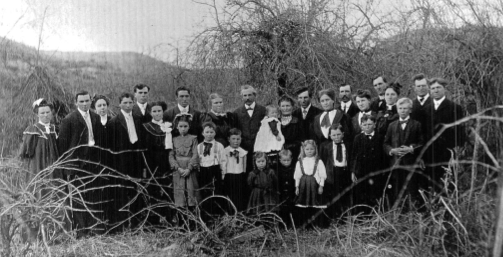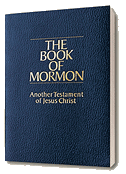 |
Is this the "fair and unbiased" view of Mormonism that people are getting?
We all know Joseph Smith had multiple wives -- he was called to be the prophet of the restoration, and to be the instrument by which God would restore the fulness of the gospel. God included in that calling the practice of having multiple wives just as Abraham, Isaac, and Jacob of the Old Testament. Contrary to what you might expect, it was not a popular teaching in the 1800s, and nobody seemed to want it taught, including Joseph -- but according to Lorenzo Snow, Joseph was told that he must either teach and practice the principle or be removed from his place. For a better overview, start here, and go to the article on "Plural Marriage".
That said, the apostles back then spoke of plural marriage in only the most reverent and sacred terms, so reports of coercion and pressure to me just sound wrong. Of course I'd love to be able to prove that those reports are distortions and lies, but as I've mentioned before, how do you prove that someone didn't do something that was supposedly done in secret and in a corner? Maybe Joseph did do those things, and I can't prove otherwise -- but I don't think so.
Dissenters often lie. Usually though, insinuation alone casts enough suspicion to keep people away, a cunning tactic for sure.
So now what? Jesus himself gave us the key: "Ye shall know them by their fruits." Matt 7:16
Okay, so I have ancestors who practiced polygamy, so in a way I'm a "fruit" of Joseph's obedience. But Joseph gave us *much* more than polygamy.
Interestingly, in 1830 at age 24, just one month before he organized the LDS church, the uneducated Joseph Smith published a 500+ page book claiming to be the religious record of a group of native American people from 600 BC to 400 AD.
His story of how the book came about is incredible, but assuming that you do not believe his story, how would you explain it? Here is a book with no obvious historical errors*, dealing with a people that a young man like Joseph would have had very little knowledge about. But even more impressive are the quantity and force of new** religious tenets that it lays down, that unbelieving scholars even today struggle to contradict using only the Bible. And he never took credit for it.
 I have a college degree, got A's in all my writing classes (and got the highest possible score on the English Proficiency Exam in college), and have been reading and writing for most of my 33 years. But I'll be the first to admit that I couldn't produce a single page of text that could be wedged into that book without my next door neighbor being able to punch a dozen holes in it. The book is really remarkable. I've read it probably a dozen times, and each time through I've been more amazed at the breadth and depth of its messages.
I have a college degree, got A's in all my writing classes (and got the highest possible score on the English Proficiency Exam in college), and have been reading and writing for most of my 33 years. But I'll be the first to admit that I couldn't produce a single page of text that could be wedged into that book without my next door neighbor being able to punch a dozen holes in it. The book is really remarkable. I've read it probably a dozen times, and each time through I've been more amazed at the breadth and depth of its messages.So what's different about it? Come and see.
* Look at the list of historical concerns raised by archeologists listed on wikipedia -- note that it is almost entirely based on absence of evidence, not contrary evidence, which is what you'd get if I tried to write something like that.
** ... to almost everybody living at that time, anyway ...
*** I've never seen this before: A baptist minister's take on the Book of Mormon.
No comments:
Post a Comment